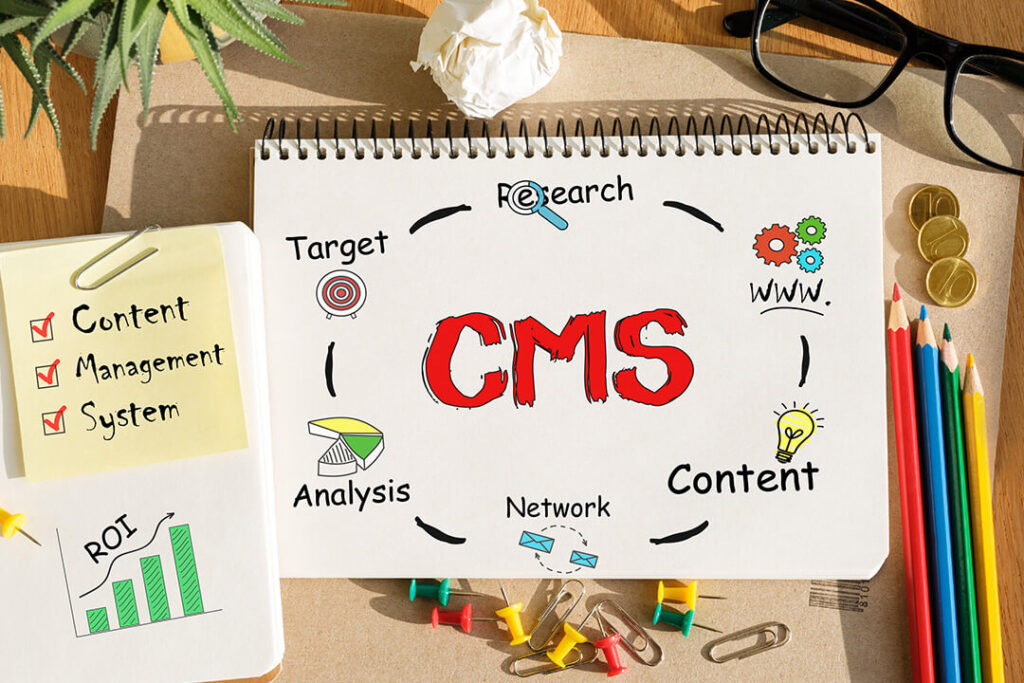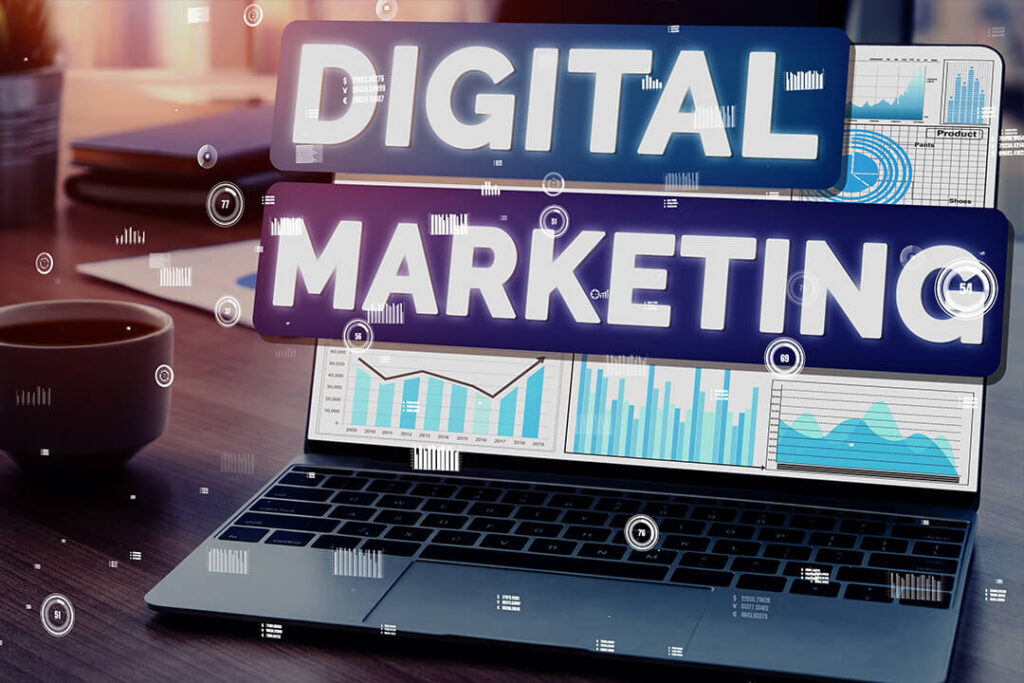Laurea People’s Signature | A Digital Marketing Agency

Best Digital Marketing Agency in Malaysia
Digital Marketing Strategy vs. Competitor: Which Should You Choose?

Digital Marketing Strategy vs. Competitor: Which Should You Choose? Are you looking for ways to help you gain a competitive edge in the market? Get your digital marketing strategy but why? Find out here. What do you think is one of the top skills businesses often look for in digital marketers? It’s not just promoting their business but developing a plan that works on and off-season. Regardless of tons of competitor analysis and products, a well-aligned and solid digital marketing strategy can change your business’s dynamics. Along with developing a strategy, you must learn about the execution of it to build as solid foundations as possible. Team LPS will break down this topic step-by-step to let you know how important digital marketing strategy is for your business in today’s cut-throat market. How Digital Marketing Strategy Can Change the Dynamics of Your Business? Developing an ad, launching it on social media, and waiting for people to respond is not a way to compete with established giants in the market. Along with in-depth ads and copy, a solid marketing strategy keeps your business firm interweaving sales and branding together. Outsmart Your Competitor Who doesn’t dream of standing tall in the industry and becoming one of the emerging leaders through their marketing tactics? Your competitor, who is highly successful and yields the desired results from their marketing, has already learned about the hidden benefits of developing your marketing strategy. To outsmart your competitor, you don’t need a marketing strategy that only defines how to bring more sales, but it should involve several factors, such as Customer Analysis Market Research Branding and Positioning Conceptual marketing Re-defining the message. Once your digital marketing strategy has all these factors, you will meet qualified leads daily to pass through every stage of your sales funnel. Access to Global Audience Sales is oxygen for any business, which comes from your existing and new audience. The better your marketing strategy is, the more widely you can reach the global audience that can respond to your marketing campaigns. One of the super simple reasons why you need a marketing strategy is to reach every customer waiting for you to resolve their problem. The simple marketing framework can do everything from launching an awareness campaign to ultimately driving the audience toward the action! There are several creative ways to market your business but to execute it, you need to develop a professional plan that stays solid in its foundations. Provide Direction to Strategic Goals Every organization has a few strategic goals that lead them to the destination. A comprehensive and well-defined marketing strategy aligns marketing efforts with business objectives and contributes to achieving business goals. As digital marketing is constantly evolving and asking for a better plan from businesses to drive more audience, the need to understand the audience requirement is more than ever. It also fosters collaboration between marketing, sales, customer service, and other relevant teams to ensure a consistent customer experience and a unified approach to achieving strategic goals. Better Understanding of the Targeted Audience Through your marketing plan, once the audience discovers your business online, convincing them to enter into a sales funnel and perform the desired action would be much simpler. There are various ways of attracting an audience to your business, but nothing works best than understanding their needs. Let’s understand it this way. What if one of your customers is looking for mobile phone accessories, but instead, you are selling laptop accessories to them? A deep understanding of your audience enables you to create content that addresses their pain points, interests, and needs. This content is more likely to resonate and connect, positioning your brand as a valuable resource. Risk Calculation In the business world, risks are inevitable, and without having a backup plan, it won’t be possible to protect your brand image from negativity. Instead of selling and talking about technical information, a pro digital marketing and strategy specialist delves deeper into a risk calculation before taking any step. Digital marketing strategy is not only a roadmap leading your business to the ultimate success but a shield against uncertainties to move past triumphs and challenges without damaging the brand. By evaluating risk calculations, it won’t be hard to hit the bull’s eye every time and cultivate a loyal audience. Analyze the Results If your marketing strategy has successfully converted eyeballs into leads, it’s time to analyze the results. Gone are the days when people used to try different tactics in the dark with no data in hand. Today, a digital marketing strategy consists of several KPIs that allow businesses to measure the impact of marketing and learn how they turn the audience’s interest into desire. When you invest enough time and deliver valuable content to the audience, your business qualifies to yield the best results. Once you have a solid marketing strategy, you can make changes for future campaigns by analyzing results. Wrapping Up I hope we must have helped you understand the importance of owning a digital marketing strategy and why you should immediately develop one to stand out. As the business is evolving, the audience’s mindset is also changing every day, and they are looking for creativity rather than going through sales messages on their screens. Since digital marketing has already taken the world by storm, every business needs to prioritize its marketing plan to stay ahead of the competition. FAQs: Got Some Questions? Why competitor analysis is important to prepare a digital marketing strategy? We must always know what our competitors are doing to think one step ahead. Competitor analysis allows businesses to explore other’s marketing strategies and learn from their success to grow within the industry. Why is it essential to know about the competitor’s digital marketing strategies? As digital marketers are bound to learn about the market’s current trends, it’s critically important for businesses to know about the competitor’s marketing strategy. Neglecting this crucial aspect of marketing would be hard to reach the level your competitor has already
Mastering Mobile Marketing: The Ultimate Guide

Mastering Mobile Marketing: The Ultimate Guide Have you ever wondered how your smartphone, that constant companion in your pocket, can hold the key to unlocking incredible opportunities for your business? From the moment we wake up to the minute we go to sleep, our smartphones are our constant companions, offering us a gateway to the digital universe. With more than 6 billion smartphone users worldwide, there are more than 6.5 million apps in the major mobile app stores, millions of web apps, and more than a billion websites in existence. Mobile marketing has emerged as a potent tool for businesses to engage with their target audience, increase brand visibility, and boost revenue. This article will take you on a journey through the exciting world of mobile marketing, providing insights, tips, and strategies to help you master this dynamic and ever-evolving field. The Rise of Mobile Marketing Mobile marketing has evolved rapidly over the past decade, transforming the way businesses interact with consumers. It all started with text messages and basic mobile websites, but today, mobile marketing encompasses a vast array of tools and strategies. The rise of mobile marketing can be attributed to several factors, including: 1. Smartphone Proliferation Smartphones are no longer a luxury; they are a necessity for billions of people. The increasing affordability and accessibility of smartphones have widened the reach of mobile marketing, allowing businesses to connect with an ever-expanding audience. 2. Mobile Apps Mobile apps have become an integral part of our lives. Businesses have capitalized on this by creating their apps to offer convenient, personalized experiences to their customers. 3. Social Media Dominance Social media platforms are predominantly accessed via mobile devices. Leveraging these platforms is essential for effective mobile marketing, as they enable real-time interaction with your target audience. 4. Location-Based Marketing GPS technology in smartphones allows businesses to target consumers with location-specific ads and promotions, making marketing messages more relevant and timely. 5. Advancements in Mobile Advertising The evolution of mobile advertising formats, such as video ads, native ads, and interactive ads, has made mobile marketing more engaging and effective. Now that we understand the key drivers of mobile marketing’s growth, let’s delve into various strategies and best practices to master this exciting field. Mobile Marketing Strategies 1. Responsive Design Your website and emails must be optimized for mobile devices. With a responsive design, your content automatically adjusts to fit various screen sizes, providing a seamless user experience. Mobile users are quick to abandon sites that are not mobile-friendly, so responsive design is a must. 2. Mobile Apps Consider developing a mobile app for your business. Apps provide a direct channel to your customers, offering personalized experiences, push notifications, and the ability to collect valuable data on user behavior. 3. SMS Marketing SMS marketing remains a potent tool to reach customers instantly. Send targeted promotions, discounts, or important updates directly to your subscribers’ text messages. 4. Social Media Advertising Leverage the power of social media platforms. Create engaging and shareable content, run targeted ads, and encourage user-generated content. Social media is where your audience spends a significant amount of their time. 5. Location-Based Marketing Harness the GPS capabilities of mobile devices to deliver location-based offers and messages. When a customer is in proximity to your business, send them a coupon or invite them to visit your store. 6. Video Marketing Video content is highly engaging and has a proven track record of success in mobile marketing. Consider creating short, attention-grabbing videos to showcase your products or tell your brand’s story. Want to dive headfirst into the fast-paced world of modern marketing? Check out: 7 Horrible Mistakes You are making with Marketing! The Role of Data in Mobile Marketing Source: LocaliQ Data is the lifeblood of mobile marketing. It provides invaluable insights into user behavior, preferences, and demographics. By analyzing this data, you can refine your mobile marketing strategies and enhance user experiences. Here’s how you can use data to your advantage: 1. User Profiling Create detailed user profiles to understand your audience better. Knowing your customers’ age, gender, location, interests, and online behavior helps tailor your marketing messages. 2. Personalization Use the data you gather to create personalized marketing campaigns. Send messages and offers that are relevant to individual customers, increasing the chances of conversion. 3. A/B Testing Continuously test different mobile marketing strategies to see what works best. A/B testing allows you to make data-driven decisions and optimize your campaigns for better results. 4. Analytics Tools Leverage analytics tools like Google Analytics and mobile-specific platforms like Firebase to track user engagement, conversion rates, and other key performance indicators. 5. Feedback Loops Encourage customers to provide feedback through mobile surveys or reviews. This not only helps you understand their needs but also builds trust and loyalty. The Power of Push Notifications Push notifications are a powerful tool in mobile marketing. These short, timely messages appear on a user’s mobile device, offering opportunities for immediate engagement. However, they must be used carefully to avoid becoming intrusive. Here are some best practices for using push notifications effectively: Personalization: Customize push notifications based on user preferences and behavior. Deliver relevant content that aligns with the user’s interests. Timing: Timing is crucial. Send push notifications at the right moment when users are most likely to be receptive. Avoid sending them during the late hours or when they might be busy. Frequency: Don’t bombard users with too many notifications. A well-timed, occasional message is more effective than constant interruptions. Value: Provide value in your notifications. Whether it’s a special offer, a relevant news update, or an event reminder, ensure that your notifications bring something meaningful to the user. Opt-In: Respect user preferences. Always ask for their permission to send push notifications and make it easy for them to opt-out if they choose to. Mobile Marketing Challenges and Solutions While mobile marketing offers numerous advantages, it also comes with its own set of challenges. Here are some common challenges and solutions to overcome them: 1. Fragmentation The Android and iOS platforms
Social Media Advertising: How it Works and Tips for Success

Social Media Advertising: How it Works and Tips for Success In today’s digital age, social media is where the action is. With billions of users scrolling through their feeds daily, it’s a goldmine for businesses looking to reach their target audience. Social media advertising is the key to unlocking this treasure trove of potential customers. But how does it work, and what strategies can guarantee success? Let’s dive in. How Social Media Advertising Works? 1. Targeting Precision One of the most powerful aspects of social media advertising is its precision in targeting. Platforms like Facebook, Instagram, Twitter, and LinkedIn offer robust targeting options. You can narrow down your audience by demographics, interests, behaviors, and more. In fact, Facebook provides access to 1,300 targeting options on average. This means you can tailor your message to the right people at the right time, significantly improving your chances of converting leads into customers. 2. Ad Formats Galore Social media ads come in various formats: image ads, video ads, carousel ads, story ads, and more. The key is to choose the format that best fits your message and resonates with your audience. For instance, if you have a compelling story to tell, a video ad might be the way to go. If you’re showcasing a range of products, a carousel ad can display them in a visually appealing way. The flexibility in ad formats empowers you to be as creative as you want. 3. Ad Auctions Social media platforms hold ad auctions to determine which ads get shown to users. It’s not just about the highest bid; it’s also about ad relevance. Quality matters. An ad with lower bids but higher relevance might win the auction and appear in users’ feeds. This emphasizes the importance of creating compelling and engaging ad content. You want your ad to be not only well-funded but also relevant to your target audience. 4. Ad Placements Your ads can appear in different places on social media, such as in users’ feeds, in the right column, or in the Stories section. You can optimize placements to reach your desired audience effectively. For instance, if your target audience primarily uses mobile devices, you can choose to display your ads on mobile. Effective placement ensures your ads are seen by the right people in the right context, increasing the likelihood of engagement and conversions. Statistics that Matter! Source: Richee Media Return on Investment (ROI) According to Hootsuite, 73% of marketers believe that social media marketing has been “somewhat effective” or “very effective” for their business. Understanding ROI is critical. Mobile Advertising Dominance Statista reports that as of 2022, 98% of Facebook’s ad revenue comes from mobile advertising. Mobile optimization is no longer an option; it’s a necessity. Video Content Rules HubSpot states that social video generates 1,200% more shares than text and image content combined. Incorporating video into your social media strategy can be a game-changer. Pro Tips for Social Media Advertising Success To excel in social media advertising, you need more than just a basic understanding. Here are some pro tips to help you succeed: 1. Understand Your Audience: Know Them Inside Out Research your target audience thoroughly. What are their pain points, interests, and online behaviors? Use this information to create highly relevant ads that resonate with your audience. The more you understand your audience, the more effectively you can tailor your message to their needs. 2. Test, Optimize, Repeat: The Power of A/B Testing A/B testing is your friend. Experiment with different ad elements, from headlines to visuals, and continually optimize based on performance. Testing allows you to fine-tune your campaigns and discover what works best for your audience. It’s an iterative process that can lead to significant improvements in your ad’s performance over time. 3. Content is King: Compelling and Visual Content Matters Craft compelling, visually appealing content. Whether it’s an image ad or a video, your content should tell a story and resonate with your audience. Visual content, in particular, has a powerful impact. Use high-quality images and videos to draw attention and convey your message effectively. Your content should be both engaging and aligned with your brand identity. 4. Leverage Retargeting: Reconnect with Interested Users Don’t forget about users who have interacted with your brand before. Retargeting ads can bring them back into the conversion funnel. By showing relevant ads to users who have previously engaged with your website or social media profiles, you increase the likelihood of conversion. Retargeting is a valuable strategy for maximizing your ad spend and converting leads into customers. Laurea People’s Signature: Your Social Media Advertising Partner At Laurea People’s Signature (LPS), we understand the intricate world of social media advertising. Our experts know how to navigate the algorithms, create compelling content, and deliver impressive ROI. We’re not just about ads; we’re about building connections and driving results. Our client-centric approach ensures that your social media advertising strategy aligns with your unique business goals. Whether it’s Facebook, Instagram, Twitter, or LinkedIn, we’ve got you covered. Let’s make social media work for you. Get in touch with LPS, and let’s take your social media advertising to the next level. Success is just a click away!
Why Is Content management system Not Working and What Can I Do About It?

Why Is the Content Management System Not Working and What Can I Do About It? For many organizations, diving into the world of code to build a platform from where you can upload images is quite difficult to deal with. Content Management System (CMS) is known as a knight in shining armor that saves them loads of time and allows them to develop, upload and manage content from a single platform. Along with managing the whole content system, the platform allows users to add unique templates and increase plugins for efficient performance and user experience. But everything has its pros and cons. Sometimes you might find it hard to operate due to some issues but fear not because we are about to troubleshoot all of them. Today team LPS is at your rescue. Let’s understand why your Content Management System is not working and what you can do to make it work! Why Your Content Management System Lacks the Efficiency That You Desire? The content management system has become necessary for every organization that plays with content and counts on it to capture the attention of its audience. When your Content management system is not working and lacks the efficiency that you are looking forward to, There could be several underlying reasons that we are about to discuss! Lack of Training Content Management System is a complete platform that requires training to work with. Let’s suppose you are a newbie and completely oblivious to the fact of how it works. How would you feel if someone handed you the platform and asked you to manage all the content through it? One of the massive reasons CMS stops working is the lack of training. Content management system training should be one of the basic principles to go through before getting your hands on it. Some of the features of CMS are sensitive, and to use them for managing the overall content, you must require intense training for probing in detail. Hosting Server Issues Let’s talk about one of the technical issues that users often encounter while using a content management system. Our CMS is hosted from the server; if your system is working slowly, has frequent server downtime, and has unexplained technical problems, it might be due to hosting server issues. To resolve it, check server logs for error messages and monitor the server status. Apart from these, another reason for hosting server issues could be exceeding capacity. You must upgrade the package if your content management system works beyond the defined capacity and your website traffic has outgrown. Software Compatibility With System Many organizations may neglect the underlying issue before launching a complaint about CMS. Every Company works through a few software to keep their system afloat amidst loads of work, but your system might malfunction when it needs software compatibility. First, you must ensure that your CMS and server software are updated and that you are not using the outdated version. Sometimes to make your software compatible, you have to downgrade one of the software to resolve system malfunctioning. You should also review CMS documentation to learn about its compatibility with other software and what measures you need to take for smooth performance. Plugin Conflicts Plugins are responsible for boosting the Content Management system’s core functionality and allowing users to make changes in functionality, features, and more. Conflicting code within plugins can lead to errors, crashes, or even the website’s white screen of death (blank page). These issues can render the website unusable. Also, if your system is going through plugin conflict, your website might get vulnerable, and user experience will be affected. Due to the conflicting plugins, your system might go through Error and crashes Broken functionality Security vulnerabilities Admin interface issues Slow loading time. Database Issues If you want content management system key features to work efficiently, ensuring that none of the data is misconfigured or corrupted is critical. Also, the system starts malfunctioning due to the failed operations within CMS, and you need a database expert for assistance. To resolve the performance issue or if your CMS is not working well, you need to optimize your DB and make sure that the credentials entered are as expected; make sure to take timely backups of your Database so that you can restore it later or you can use third-party library/tools to get you to keep running with it. Lastly, you can always look at your running ports and make sure there is no mismatch. Wrapping Up To summarize, Content Management System is a powerful tool that streamlines many processes within the organization and paces up tedious tasks in minutes, but it often gets frustrating if the system doesn’t work as per the user’s expectation to improve it; we can do following efforts to keep it up and running Ensure that all the employees have followed and completed every compliance and technical training. Ensure that the server has enough capacity and that there is no downtime. Making sure all the mandatory softwares, plugins, or extensions are compatible with the software. There’s always a chance to get conflict in the mismatch of plugins, so always test in parallel to minimize the risk. Lastly, keep your Database optimized and seek a technical team for assistance. FAQs. Got Some Questions? How can I improve my Content Management System? Improving your content management system is equivalent to boosting user experience. Any organization can improve its content management system by focusing on the four steps. Boost tech of the system Improve messaging to resolve issues Focus on other customer management systems Cleanup storage to remove stale content Why do you need a CMS, and how can it help you? Content Management Systems allow companies to control, edit and publish content without going through a long communication process. This system allows the team to keep your website organized, clean, and looking great. What are the top three important components of CMS? If you want your CMS to be perfect in operation, here are
Online Reputation Management Challenges and Strategies to Succeed

Online Reputation Management Challenges and Strategies to Succeed In the ever-evolving digital age, people’s perception of your brand directly relates to its growth, relationships, and revenue streams. Hence, garnering a positive online reputation functions as a virtual calling card, making an influential first impression on potential clients, and here comes the role of Online Reputation Management. Online Reputation Management Research reveals that 85% of consumers suppose online reviews are as reliable as personal recommendations. It indicates the crucial need for effective online reputation management for businesses and brands across various platforms that could lead to precious opportunities. However, numerous individuals and businesses are having a hard time retaining their reputational integrity as ORM endeavors are not producing the desired outcomes for them. The question arises: Why are these painstakingly crafted strategies falling short? Well, several factors contribute to the cause, and we will discuss the most underlying ones in this blog. You will also have insight into tools and strategies of online reputation management to combat the worst phase of digital threats tarnishing your brand image. So, let’s dive in to find the hack out. Why ORM Efforts Aren’t Yielding Results?Common Pitfalls Whether running a high-end business or a small startup, your stellar online perception is an asset you never want to compromise. Therefore, we have brought your way some ORM pitfalls and strategies to cope with them below. Let’s explore them to lay the foundation of a sustainable business. 1. Lack of Strategy and Clear Goals A comprehensive ORM strategy is like a roadmap that guides efforts, ensuring that every action aligns with a larger goal. When individuals or businesses venture into Online Reputation Management without a well-defined goal, their efforts tend to be disjointed and reactive rather than proactive. Therefore, beginning with measurable objectives for your Online Reputation Management campaign tailored to your business needs is essential. For instance, you might aim to increase positive reviews, address specific negative feedback, or establish thought leadership within your industry. However, these metrics require some holistic approaches that are as follows: Determine your target customers and understand their preferences, concerns, and frequently used platforms. Develop high-quality content that showcases your expertise, addresses audience needs, and highlights positive aspects of your brand. Anticipate potential reputation crises beforehand and devise tailored strategies to address them swiftly and effectively. 2. Overlooking Customer Engagement When we talk about effective Online Reputation Management, one of the major factors often overlooked is active customer engagement. 70% of consumers believe that a clear understanding of their perception leads to increased brand loyalty, and it’s only possible if you engage with them via different social channels. Failing to interact actively with customers on digital platforms reflects that their opinions, questions, and feedback are useless. This negligence can make customers feel unheard, which may lead them to express their concerns more distinctly, potentially damaging the brand’s reputation. Thus, to avoid a negative perception in customers’ eyes, businesses must respond promptly to customer queries with a responsive attitude. Moreover, in case of negative feedback, be empathetic, offer solutions, and work towards resolving the issue. It not only appeases the concerned customer but also exhibits your commitment to customer satisfaction. 3. Reckless Monitoring and Tracking Another prevalent pitfall undermining Online Reputation Management success is improperly tracking social media channels to adapt to evolving customer requirements. Failing to diligently monitor and track online mentions stand feedback can lead to missed opportunities for reputation enhancement. Moreover, trends and changes in online sentiment can turn small issues into larger reputation crises if not monitored and addressed properly. Therefore, businesses should adopt a comprehensive approach by leveraging robust monitoring tools that provide real-time insights into their online reputation. Moreover, watching review sites and directories relevant to your business could help you respond to customer reviews vigilantly. Another way is to set up keyword alerts to get notified whenever specific terms or phrases associated with your brand are mentioned online. This helps you stay on top of conversations without any hassle of actively searching for them. 4. Neglecting The SEO Metrics In today’s world, your online presence is the most crucial factor in determining your business success, and SEO stands as the cornerstone in fostering that. 70% of executives believe that SEO determines brand perception. Thus, ignoring SEO metrics results in unoptimized content influencing search engine rankings. Consequently, negative content might dominate search results, overshadowing positive contributions and hampering Online Reputation Management goals. Therefore, businesses must incorporate effective SEO strategies across marketing channels to improve brand reputation and reduce negative mentions. It includes: Optimizing high-quality positive content for search engines to increase the click-through rate of your site Conducting thorough keyword research to evaluate the terms and phrases potential stakeholders use when searching for information related to your brand. Maintain an active online presence by regularly updating your website and online presence on other social platforms with fresh, valuable content. This signals to search engines that your brand is current and relevant. Ensure your online content is optimized for mobile devices, as search engines prioritize mobile-friendly websites in their rankings. Employ SEO strategy to push negative content lower in search engine results. By increasing the visibility of positive content, you can diminish the impact of unfavorable mentions. The Bottom Line Consequently, the comprehensive and meticulously defined challenges in Online Reputation Management and their respective solutions can aid in maintaining your credibility across various social platforms. As a result, you can not only earn a positive online reputation but also keep it intact in the long run. FAQs: Got Queries? Q.1 What is Online Reputation Management? Online Reputation Management is a practice of managing and influencing how people perceive an individual, business, or brand online. It involves monitoring and shaping online content, feedback, and interactions to build a positive image and trust among internet users. Q.2 What is the reason behind businesses complaining about their online reputation? Businesses often complain about their online reputation due to negative reviews, feedback, and content that can impact consumer trust, brand
Digital Marketing Strategy vs Competitor: Which Should You Choose?

Digital Marketing Strategy vs. Competitor: Which Should You Choose? Are you looking for ways to help you gain a competitive edge in the market? Get your digital marketing strategy but why? Find out here. What do you think is one of the top skills businesses often look for in digital marketers? It’s not just promoting their business but developing a plan that works on and off-season. Regardless of tons of competitor analysis and products, a well-aligned and solid digital marketing strategy can change your business’s dynamics. Along with developing a strategy, you must learn about the execution of it to build as solid foundations as possible. Team LPS will break down this topic step-by-step to let you know how important digital marketing strategy is for your business in today’s cut-throat market. How Digital Marketing Strategy Can Change the Dynamics of Your Business? Developing an ad, launching it on social media, and waiting for people to respond is not a way to compete with established giants in the market. Along with in-depth ads and copy, a solid marketing strategy keeps your business firm interweaving sales and branding together. Outsmart Your Competitor Who doesn’t dream of standing tall in the industry and becoming one of the emerging leaders through their marketing tactics? Your competitor, who is highly successful and yields the desired results from their marketing, has already learned about the hidden benefits of developing your marketing strategy. To outsmart your competitor, you don’t need a marketing strategy that only defines how to bring more sales, but it should involve several factors, such as Customer Analysis Market Research Branding and Positioning Conceptual marketing Re-defining the message. Once your digital marketing strategy has all these factors, you will meet qualified leads daily to pass through every stage of your sales funnel. Access to Global Audience Sales is oxygen for any business, which comes from your existing and new audience. The better your marketing strategy is, the more widely you can reach the global audience that can respond to your marketing campaigns. One of the super simple reasons why you need a marketing strategy is to reach every customer waiting for you to resolve their problem. The simple marketing framework can do everything from launching an awareness campaign to ultimately driving the audience toward the action! There are several creative ways to market your business but to execute it, you need to develop a professional plan that stays solid in its foundations. Provide Direction to Strategic Goals Every organization has a few strategic goals that lead them to the destination. A comprehensive and well-defined marketing strategy aligns marketing efforts with business objectives and contributes to achieving business goals. As digital marketing is constantly evolving and asking for a better plan from businesses to drive more audience, the need to understand the audience requirements is more important than ever. It also fosters collaboration between marketing, sales, customer service, and other relevant teams to ensure a consistent customer experience and a unified approach to achieving strategic goals. Better Understanding of the Targeted Audience Through your marketing plan, once the audience discovers your business online, convincing them to enter into a sales funnel and perform the desired action would be much simpler. There are various ways of attracting an audience to your business, but nothing works best than understanding their needs. Let’s understand it this way. What if one of your customers is looking for mobile phone accessories, but instead, you are selling laptop accessories to them? A deep understanding of your audience enables you to create content that addresses their pain points, interests, and needs. This content is more likely to resonate and connect, positioning your brand as a valuable resource. Risk Calculation In the business world, risks are inevitable, and without having a backup plan, it won’t be possible to protect your brand image from negativity. Instead of selling and talking about technical information, a pro digital marketing and strategy specialist delves deeper into a risk calculation before taking any step. Digital marketing strategy is not only a roadmap leading your business to the ultimate success but a shield against uncertainties to move past triumphs and challenges without damaging the brand. By evaluating risk calculations, it won’t be hard to hit the bull’s eye every time and cultivate a loyal audience. Analyze the Results If your marketing strategy has successfully converted eyeballs into leads, it’s time to analyze the results. Gone are the days when people used to try different tactics in the dark with no data in hand. Today, a digital marketing strategy consists of several KPIs that allow businesses to measure the impact of marketing and learn how they turn the audience’s interest into desire. When you invest enough time and deliver valuable content to the audience, your business qualifies to yield the best results. Once you have a solid marketing strategy, you can make changes for future campaigns by analyzing results. Unlocking Marketing Success with Laurea People’s Signature I hope we must have helped you understand the importance of owning a digital marketing strategy and why you should immediately develop one to stand out. Laurea People’s Signature (LPS) is not just your typical digital marketing agency; we’re your trusted partner in achieving remarkable online growth without breaking the bank. Our dedicated ads management team takes a personalized approach, getting to know your business intimately. At LPS, we believe in delivering results that truly matter, and we’re committed to helping you achieve your online goals efficiently and cost-effectively. To dive deeper into our offerings and request a personalized quote, don’t hesitate to get in touch with us. Our dedicated customer support team is here to assist you around the clock, ensuring you receive the guidance and information you need at your convenience. FAQs: Got Some Questions? Why competitor analysis is important to prepare a digital marketing strategy? We must always know what our competitors are doing to think one step ahead. Competitor analysis allows businesses to explore other’s marketing strategies and learn from their
Grow your Business with Ads Management in the Technology Era

Grow your Business with Ads Management in the Technology Era The e-commerce world has been moving forward at a fast pace introducing different tactics for business growth. Online businesses utilize all possible tools to ensure long-life success and brand worth in the competitive market. According to DataReportal, an Instagram ad can reach 1.3 billion users. An advertisement is a fantastic tool that helps businesses promote their products and achieve better. However, multiple advertising channels and ad management techniques have made it impossible for business owners to take care of business and ad campaigns simultaneously. So what can I do then? You can hire a digital marketing agency to manage your advertisement for better reach, search engine visibility, and maximizing ROI. But make sure that the chosen agency crafts advertisement strategy and budget according to your business. Let’s dive deep into how effective ad management can help you grow your business in a fast-growing technology era without getting hoodwinked. Are you ready for this? Let’s get started! 5 Tips for Ads Management–Spend your Budget Wisely Ads management requires specific skills and market knowledge to create an effective advertising strategy for promised growth. Here are five tips you should follow to get the best investment return in the long run. Spend on the right audience Imagine you being wasted trying to convert an audience that is not interested. Ahh! That’s the biggest nightmare. To avoid this, it is essential to analyze the market and target the right audience with a high chance of being converted. You can target the audience based on demographics, age, and social status to make sure you get maximum results from your ad campaign. Pro Tip: If your e-commerce store sells female clothing in Malaysia, it is crucial for you to target an interested female audience in Malaysia. On the other hand, if you are a clothing brand selling unisex clothing items, you should launch different ads for each category. Conduct in-depth research Conduct in-depth research on your competitor, niche, and marketing strategies to design a perfect ad that brings sales to your tables. This can be done by finding the right keywords, SEO/SEM strategies, ad budget, surveys, and ads reach. Thorough research helps you to manage your advertisements in the future. However, expert services are still recommended to avoid wasting your budget and efforts. If you want to know more about SEO companies in Malaysia, click here to check out an in-depth guide. Be unique to stand out Every day, hundreds of new trends are introduced in the advertisement industry to make it a mainstream marketing channel. Since everyone is trying to be unique, you must take a step ahead of them to stand out. Your ad campaign must have powerful imagery, metaphors, and CTAs to influence the audience to click. Build a consistent image, so the audience remembers your advertisement and chooses your products over other businesses. Optimize your ads for maximum ROI Optimize the budget and bids according to the ad campaign and schedule it properly to enjoy the optimum results and ROI. Try different formats and placements with the creative ads management team to find the one that drives the best results. Perform A/B testing to improve the content, copy, and visuals used in the advertisement. Revamp the strategies according to the new trends and analytics to ensure high conversion rates. Monitor ads performance But how do I know whether I’m getting sales from ads or not? Well, that’s a good question! You should keep monitoring your ads performance to determine how your audience responds. Expert Advertisement campaign managers used advanced Al tools to monitor the ads’ performance and public response to them. However, there are also manual ways to monitor how impactful your ad is in front of the targeted audience. It can be done by analyzing the analytics and conducting surveys and questionnaires. After having the required data, you can modify your ad promotion and marketing strategy according to it. Why is Ads Management Challenging for Business? Spending on online advertising in the United States is expected to double that of TV advertising by 2024. It concludes that online advertisement is driving mind-blowing sales to businesses. But there are some on the other edge. Many businesses think spending on social media ads is a budget waste. That’s because they do not know how to manage the advertisement or don’t have enough time to do so. However, you can hire a team of professionals to help your e-commerce business convert more customers online via ads. Laurea People’s Signature–Your Budget our Expertise Laurea People’s Signature (LPS) is a top-notch digital marketing agency that believes in helping your online business grow immensely without hefty investments. Our ads management team understands your business’s needs with one-on-one consultation sessions to bring the outcome you dreamt of. For more details and quotes, feel free to contact us. Our customer care is responsive over the clock for your assistance.
Top 5 best E-Commerce website designs to stand out in 2023

“First Impression is the last impression.”
Remember! We have been told this phrase in our first meetings usually. Similarly, your e-commerce website design should also ace the first customer impression because it is also a first meeting.
Businesses’ websites are their main selling point. Your website must represent who you are and what you sale. According to top design firms, 50% of customers believe that website design is crucial to a business’s overall brand.
How to Grow Local Business Online with Digital Marketing in 2023

Are you a local business owner and want to expand your services online? Whether you are a tattoo artist or a coffee shop next door, the online business world can open new doors of revenue for you.



